Haein Kong
When LLM Therapists Become Salespeople: Evaluating Large Language Models for Ethical Motivational Interviewing
Mar 30, 2025



Abstract:Large language models (LLMs) have been actively applied in the mental health field. Recent research shows the promise of LLMs in applying psychotherapy, especially motivational interviewing (MI). However, there is a lack of studies investigating how language models understand MI ethics. Given the risks that malicious actors can use language models to apply MI for unethical purposes, it is important to evaluate their capability of differentiating ethical and unethical MI practices. Thus, this study investigates the ethical awareness of LLMs in MI with multiple experiments. Our findings show that LLMs have a moderate to strong level of knowledge in MI. However, their ethical standards are not aligned with the MI spirit, as they generated unethical responses and performed poorly in detecting unethical responses. We proposed a Chain-of-Ethic prompt to mitigate those risks and improve safety. Finally, our proposed strategy effectively improved ethical MI response generation and detection performance. These findings highlight the need for safety evaluations and guidelines for building ethical LLM-powered psychotherapy.
FCC: Fully Connected Correlation for Few-Shot Segmentation
Nov 18, 2024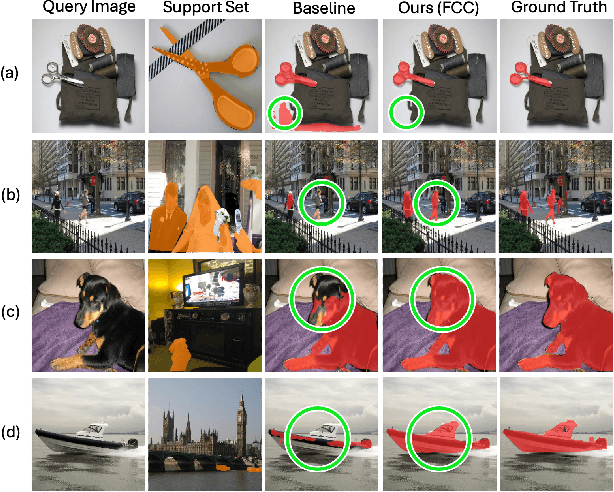
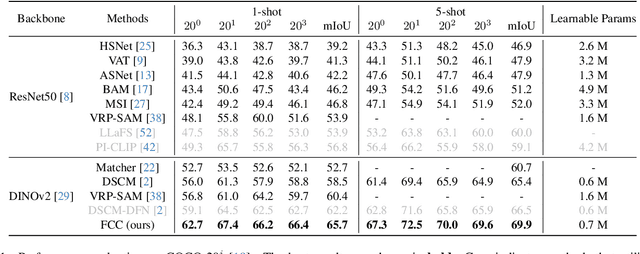
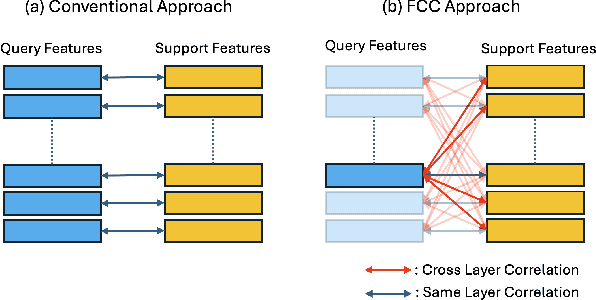
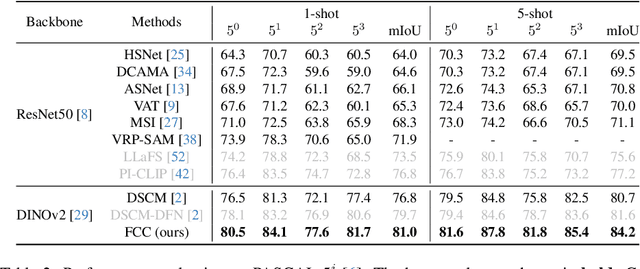
Abstract:Few-shot segmentation (FSS) aims to segment the target object in a query image using only a small set of support images and masks. Therefore, having strong prior information for the target object using the support set is essential for guiding the initial training of FSS, which leads to the success of few-shot segmentation in challenging cases, such as when the target object shows considerable variation in appearance, texture, or scale across the support and query images. Previous methods have tried to obtain prior information by creating correlation maps from pixel-level correlation on final-layer or same-layer features. However, we found these approaches can offer limited and partial information when advanced models like Vision Transformers are used as the backbone. Vision Transformer encoders have a multi-layer structure with identical shapes in their intermediate layers. Leveraging the feature comparison from all layers in the encoder can enhance the performance of few-shot segmentation. We introduce FCC (Fully Connected Correlation) to integrate pixel-level correlations between support and query features, capturing associations that reveal target-specific patterns and correspondences in both same-layers and cross-layers. FCC captures previously inaccessible target information, effectively addressing the limitations of support mask. Our approach consistently demonstrates state-of-the-art performance on PASCAL, COCO, and domain shift tests. We conducted an ablation study and cross-layer correlation analysis to validate FCC's core methodology. These findings reveal the effectiveness of FCC in enhancing prior information and overall model performance.
Gender Bias in LLM-generated Interview Responses
Oct 28, 2024



Abstract:LLMs have emerged as a promising tool for assisting individuals in diverse text-generation tasks, including job-related texts. However, LLM-generated answers have been increasingly found to exhibit gender bias. This study evaluates three LLMs (GPT-3.5, GPT-4, Claude) to conduct a multifaceted audit of LLM-generated interview responses across models, question types, and jobs, and their alignment with two gender stereotypes. Our findings reveal that gender bias is consistent, and closely aligned with gender stereotypes and the dominance of jobs. Overall, this study contributes to the systematic examination of gender bias in LLM-generated interview responses, highlighting the need for a mindful approach to mitigate such biases in related applications.
Success or Failure? Analyzing Segmentation Refinement with Few-Shot Segmentation
Jul 05, 2024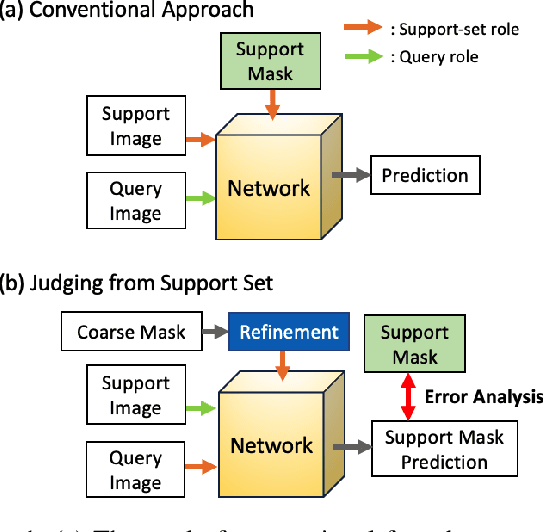

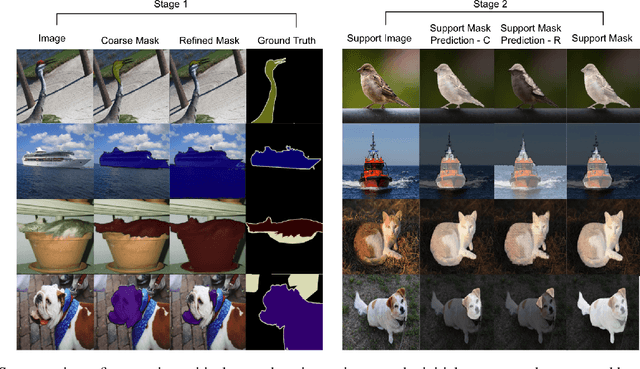
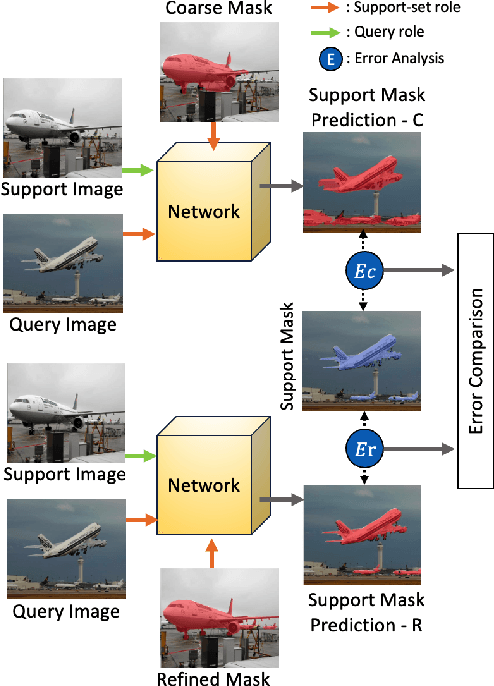
Abstract:The purpose of segmentation refinement is to enhance the initial coarse masks generated by segmentation algorithms. The refined masks are expected to capture the details and contours of the target objects. Research on segmentation refinement has developed as a response to the need for high-quality initial masks. However, to our knowledge, no method has been developed that can determine the success of segmentation refinement. Such a method could ensure the reliability of segmentation in applications where the outcome of the segmentation is important, and fosters innovation in image processing technologies. To address this research gap, we propose JFS~(Judging From Support-set), a method to identify the success of segmentation refinement leveraging a few-shot segmentation (FSS) model. The traditional goal of the problem in FSS is to find a target object in a query image utilizing target information given by a support set. However, in our proposed method, we use the FSS network in a novel way to assess the segmentation refinement. When there are two masks, a coarse mask and a refined mask from segmentation refinement, these two masks become support masks. The existing support mask works as a ground truth mask to judge whether the quality of the refined segmentation is more accurate than the coarse mask. We first obtained a coarse mask and refined it using SEPL (SAM Enhanced Pseduo-Labels) to get the two masks. Then, these become input to FSS model to judge whether the post-processing was successful. JFS is evaluated on the best and worst cases from SEPL to validate its effectiveness. The results showed that JFS can determine whether the SEPL is a success or not.
 Add to Chrome
Add to Chrome Add to Firefox
Add to Firefox Add to Edge
Add to Edge